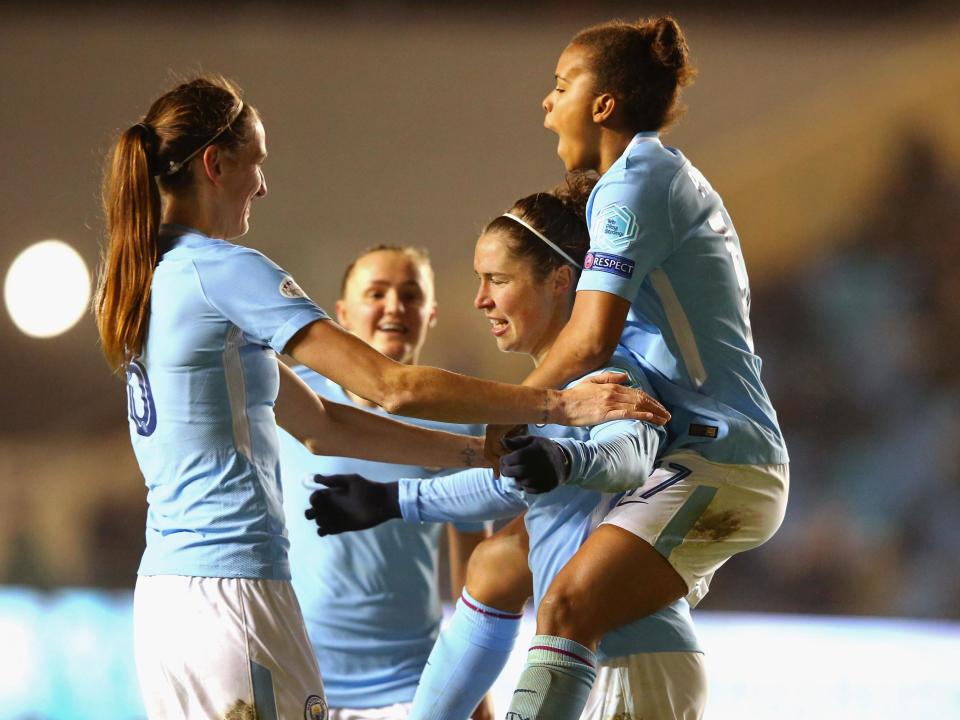How much does it cost Premier League clubs to run a women's football team?

Manchester United are expected to commit an initial £5m towards their first professional women’s team - or, if you like, around the same amount of money the club spends on Paul Pogba and Alexis Sanchez’s basic salaries in the space of two months.
It is a modest price to pay for the privilege of being “dragged into the 21st century”, as sports minister Tracey Crouch termed it on Thursday, and it will at least put a stop to awkward questions that have followed the club over the issue in recent years.
Predictably though, the news was not welcomed in all quarters. Some complaints that emerged on social media channels were crude and not worth consideration, but others respectfully questioned whether the money would be better spent elsewhere.
Could United instead have used the £5m to reduce ticket prices, encouraging more young and more female supporters to attend Old Trafford? Perhaps then the stadium's staid atmosphere would be improved without any need for 'song sheets'.
Whatever the angle of the counter-arguments, most were financial in nature and came back to what is an incontrovertible fact. It is true that the majority of women's teams do not make money, they lose it.
Take, for example, Manchester City. Nick Cushing's side are currently vying for this year's Women’s Super League title and have one foot in the semi-finals of the Women’s Champions League. They are also the Women's FA Cup holders.
Since integration with the men's team and a subsequent relaunch in 2014, City have come a long way, but in order to get this far, a loss of almost £1.5m has been incurred. Around half of that came in the most recent financial year, despite it correlating with one of the team’s most successful seasons on the pitch.
Yet at a club that has spent almost £450m to acquire male players in the last two years, one that was still profitable despite operating expenses of more than £500m last year, a £1.5m outlay on women’s football since 2014 is hardly a great expense.
Other WSL clubs do not have Abu Dhabi’s money to fall back upon, but they cut their cloth accordingly and their costs are significantly lower.
Women's Super League profit/loss since 2014
Though most WSL clubs are classified as small companies and therefore are not required to submit full accounts to Companies House, Arsenal, Everton and Liverpool have, like City, posted turnover and profit figures for each financial year since 2014.
Arsenal, one of the women's game's best-established and most successful clubs, have lost £420,000 over the last four financial years. Liverpool’s costs are lower still, clocking in at a fraction under £300,000 - 0.4 per cent of Virgil van Dijk’s transfer fee.
Everton, meanwhile, are profitable, earning just under £44,000 over the last four financial cycles. The current WSL 1 leaders Chelsea did not submit full accounts over the same period, but their abridged records show a profit of just over £24,000 returned in 2015.
These are hardly ground-breaking amounts but they are profits nonetheless and as revenues, attendances and the profile of the women’s game all grow in this country, more WSL clubs should begin to find themselves in the black.
But then in any debate regarding money in the women’s game, it is worth remembering that it is difficult for any football club to post consistent profits, no matter what the gender of their players.
In the most recent set of complete Premier League accounts that we have, the 20 clubs to compete in the 2015-16 campaign posted a combined loss of £117m.
This is just one example of why Deloitte’s much-vaunted Football Money League is based on revenue alone. Football and business may look one and the same these days, but football is still not good, reliable business and it is never likely to be.
Why then should some relatively small costs be a barrier towards a more equal sport? In the past, when it came to women’s football, Manchester United and plenty of other clubs before them seemed to know its price but not its value.
That, gradually, appears to be changing.

 Yahoo Sport
Yahoo Sport 





































